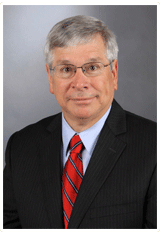In 1936, through a constitutional amendment, the state of Missouri created its Department of Conservation. It was the first apolitical, science-based conservation department in the nation, and quickly became a model for other states. Since then, the department has become not only one of the best in the country, but in the world, consistently providing outstanding services to the citizens of our state for more than 75 years.
The department currently protects nearly one million acres, or around 2 percent, of land in Missouri for public use; manages 924 lakes and streams; maintains more than 370 miles of trails; operates nine hatcheries that produce an estimated nine million fish to be placed in public waterways; and has five conservation nature centers and two education centers, which receive around 900,000 visitors every year.
These efforts do not go unnoticed by the people of Missouri. With more than one million resident anglers, 600,000 hunters, and 2.2 million wildlife watchers, the department plays a critical role in protecting and managing one of Missouri’s greatest resources: our forests, fish and wildlife. Almost 100,000 people’s livelihoods come from jobs based around these resources and activities. It accounts for a quarter of all tourism dollars spent in Missouri, resulting in a $11.4 billion economic impact to the state.
It’s impossible to overstate the success of our Department of Conservation, and much of this is due to the broad autonomy given to the department. The agency is run by a citizen-led commission that welcomes public input and funds itself, through revenue generated by the issuance of licenses and permits, and through a one-eighth of 1 percent sales tax that was passed in 1976. The department has resisted political influence so it can continue protecting the land we call home.
This is why I was shocked by an attempt earlier this week to place the Department of Conservation under the authority of the Joint Committee on Administrative Rules, a legislative body responsible for reviewing and promulgating rules departments implement to follow state statutes, through the passage of Senate Joint Resolution 42.
Now, I understand the need for oversight when it comes to state departments. I’m a member of the Joint Committee on Administrative Rules. State agencies are given broad authority to make rules, and it’s incredibly important we ensure those rules don’t infringe on citizens’ rights or violate state law. We’ve seen abuses in recent years, and it’s important we move to stop those.
However, I see no justifiable reason to place a department that has existed since its creation as apolitical at the mercy of the Legislature and lawmakers with their own agendas. It only adds politics into an agency whose success can be greatly attributed to avoiding that.
Furthermore, the people have already decided this matter. On two separate occasions, once in 1978 and again in 1982, voters overwhelmingly chose to keep the Department of Conservation out of the administrative rules process.
Those voters, like me and other colleagues, understood the danger of letting special interests taint what should be a department above the political machinations of lawmakers and lobbyists, especially when it already has an extensive and strict rule-making process that involves ample public input. We’ve already seen attempts to legislate conservation issues, such as restricting who can and can’t hunt, and what people should pay for permits.
With this in mind, I filed an amendment to remove the department from the oversight of the Joint Committee on Administrative Rules. I was grateful to see a majority of my colleagues, including the sponsor of the bill, support the proposal.
Our Conservation Department is already the best in the country. I believe forcing this non-political department, which is outside of the appropriations process, into the political arena could have disastrous effects on the ability of Missourians to enjoy the beautiful place we call home. I will do everything in my power to see that doesn’t happen.
Contact Me
I always appreciate hearing your comments, opinions, and concerns. Please feel free to contact me in Jefferson City at (573) 751-2459. You may write me at Wayne Wallingford, Missouri Senate, State Capitol, Jefferson City, MO 65101, or email at wayne.wallingford@senate.mo.gov or www.senate.mo.gov/wallingford.
If would like to stop receiving these weekly updates, please send an email here. |



